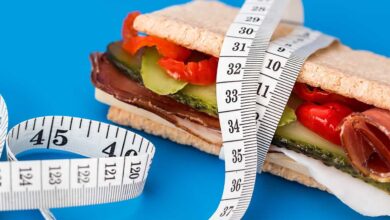Third Trimester Checkups and Recommended Practices for a Healthy Pregnancy

Entering the third trimester marks an exciting final stretch before you meet your baby. This period involves significant physical and emotional changes, making regular checkups and adhering to recommended practices a must for the health and well-being of both mother and baby. Here’s what you must know about effectively navigating these crucial third trimester checkups.
Key Third Trimester Checkups
- Routine Prenatal Visits: During the third trimester, prenatal visits become more frequent. Typically, these checkups occur every two weeks up to week 36 and then weekly until birth. During these visits, your healthcare provider will check your blood pressure, test your urine for protein and sugar, check the baby’s heart rate, measure your fundal height, and discuss symptoms and any concerns.
- Glucose Tolerance Test: If not done in the second trimester, a glucose tolerance test might be conducted to screen for gestational diabetes, which is crucial to manage for the baby’s and mother’s health.
- Group B Streptococcus Screening: Around 35 to 37 weeks, a test for Group B Streptococcus (GBS) bacteria is typically done. GBS can be harmless in adults but might pose serious health risks for newborns. If you test positive, your doctor will recommend antibiotics during labor.
- Biophysical Profile (BPP): This test might be suggested if there are concerns about the baby’s health. It combines an ultrasound with a non-stress test to check on the baby’s movements, breathing, and heart rate.
- Ultrasound Scans: Though not always standard, an ultrasound might be performed in the third trimester to check the baby’s position, growth, and the placenta’s location and health.
Recommended Practices for a Healthy Third Trimester
- Nutrition: Continue eating a well-balanced diet rich in iron, calcium, and protein. Omega-3 fatty acids are also crucial as they aid in the baby’s brain development. Stay hydrated and consider small, frequent meals if experiencing indigestion or heartburn.
- Exercise: Gentle exercise like walking, prenatal yoga, and swimming can help manage stress, improve circulation, and enhance physical endurance which is beneficial for labor and delivery.
- Childbirth Education Classes: These classes can be invaluable for first-time parents. Topics generally include labor, delivery, breastfeeding, and newborn care.
- Preparations for Delivery: Pack your hospital bag with essentials such as ID, insurance information, hospital forms, toiletries, a going-home outfit for yourself and the baby, and a newborn car seat.
- Rest: As your body prepares for labor, it’s important to get plenty of rest. Listen to your body and take naps as needed.
- Mental Health: Pay attention to your mental health. Feelings of anxiety and anticipation are normal, but it’s important to discuss any concerns or stressors with your healthcare provider. Engaging in mindfulness practices, meditation, or talking with a counselor can also be supportive.
FAQ’s
How often should I visit my healthcare provider during the third trimester?
In the third trimester, expect to see your healthcare provider every two weeks until the 36th week, after which visits will likely become weekly until delivery. These frequent checkups ensure that both you and your baby are healthy as you approach the due date.
What is the Group B Streptococcus (GBS) test, and why is it important?
The GBS test is a routine screening performed between 35 and 37 weeks of pregnancy to check for the presence of Group B streptococcus bacteria. If you test positive, you’ll receive antibiotics during labor to prevent the bacteria from infecting your baby during delivery, as it can lead to serious complications for the newborn.
Should I continue to exercise during the third trimester?
Yes, maintaining an exercise routine is encouraged as long as it’s comfortable. Gentle exercises like walking, prenatal yoga, and swimming can help reduce stress, improve circulation, and increase stamina, which are all beneficial for labor and recovery.
What should I include in my hospital bag for delivery?
Pack essentials such as your ID, insurance information, hospital forms, personal toiletries, comfortable clothing, a going-home outfit for yourself and the baby, and a car seat for the newborn. Also consider including items for your comfort, such as a favorite pillow, snacks, and entertainment options like books or magazines.
Conclusion: The third trimester is both an exciting and demanding time. Regular checkups and following recommended health practices can help ensure a safe and healthy conclusion to your pregnancy journey. Always communicate openly with your healthcare provider about your concerns and symptoms to receive tailored advice that is best for you and your baby.
Recommendations: Maintain a balanced diet rich in iron, calcium, and omega-3s, eat small, frequent meals to ease indigestion, and stay hydrated. Keep active with gentle exercises like walking or prenatal yoga, prioritize rest, and continue regular prenatal checkups to ensure both your health and your baby’s.
- Discover more expert insights and articles on our homepage, carefully selected to guide you toward enhanced health and overall wellness.




